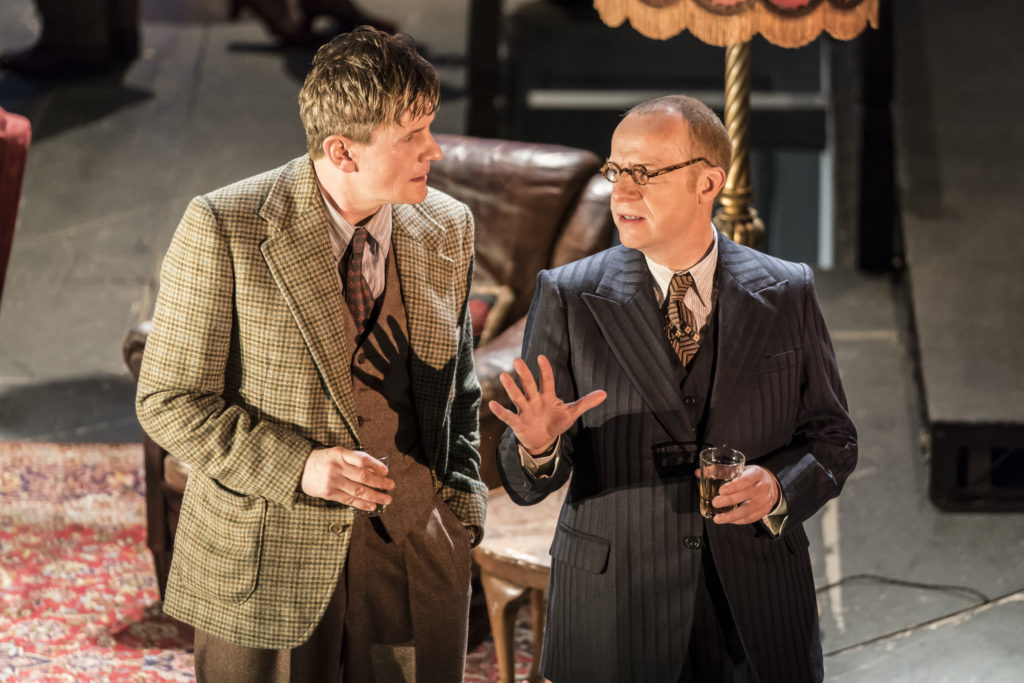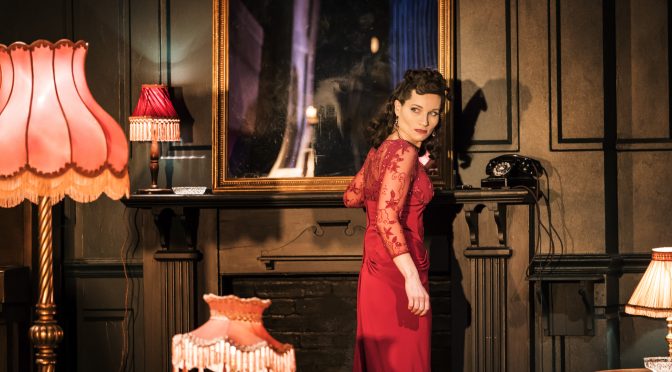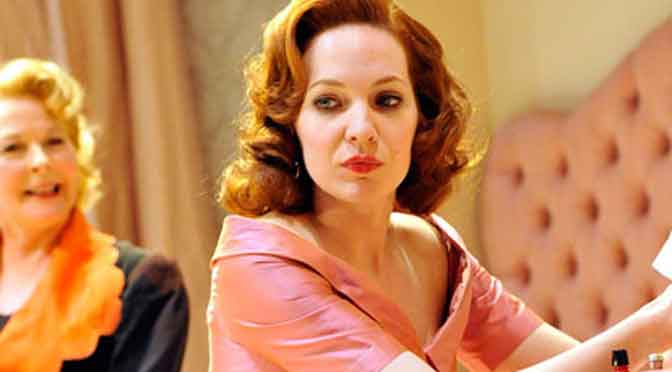It’s a brave actress who takes on a role made famous by Judi Dench but as Christine, the alcoholic autophobic landlady of Rodney Ackland’s play, Kate Fleetwood brings her usual consummate skill to the job. Like her club, which remained open throughout the Blitz, Christine is falling apart just as World War II ends and most people are starting life again. Acclaim should be shared with Charles Edwards as Hugh, a too-regular-regular and once promising author who remains sympathetic despite his scrounging and whining. The couple’s love lives and drunken desperation power the play into a dark territory that makes this a fascinating piece.

The members of La Vie En Rose club create the kind of ensemble show the National Theatre excels in, and the size of the cast alone is impressive. Sinéad Matthews does well as the louche Elizabeth, carrying on an affair in front of her long-term partner Siegfried (Danny Webb), while Jonathan Slinger’s gloriously camp film director Maurice Hussey attempts to live up to his name. If Martins Imhangbe doesn’t quite convince as the object of all affections, the fault lies with the writer – the earnest GI’s sincerity has no place amongst all this narcissism and nastiness. Which isn’t to say you won’t enjoy watching the club’s habitués: there’s a strong collection of comic cameos, including Liza Sadovy as an heiress dubbed The Treacle Queen, and Lloyd Hutchinson’s mad artist.
Everyone is escaping, and it’s a theme Ackland is less than subtle with. The play’s first incarnation was in the 1950s and overtones of Existentialism overpower it. Director Joe Hill-Gibbons decides not to restrain the piece and excesses occur, including poor Rachel Dale as local prostitute Fifi forced to walk around the stage all night – surely a little too literal? Lizzie Clachan’s set design does not serve the play well. There’s a lot of coming and going here and using the whole of the Lyttleton stage as well as giving the club three flights of stairs makes it all rather exhausting to watch.
Both play and production make up for problems with the humour on offer. Above all, it’s startlingly original. This cruel look at war-time Britain isn’t the kind of thing we are used to – no wonder it shocked so soon after the events depicted. As a satirist, Ackland is a harsh master. As insult and faux pas fly, characters become increasingly diminished in the audience’s eyes. Is there anyone to root for here? There are certainly no failings that aren’t ruthlessly exposed. The humour is out-and-out biting, vicious and extreme. And, by delivering absolutes, the play becomes heaven rather than hell.
Until 16 June 2018
Photos by Johan Persson


